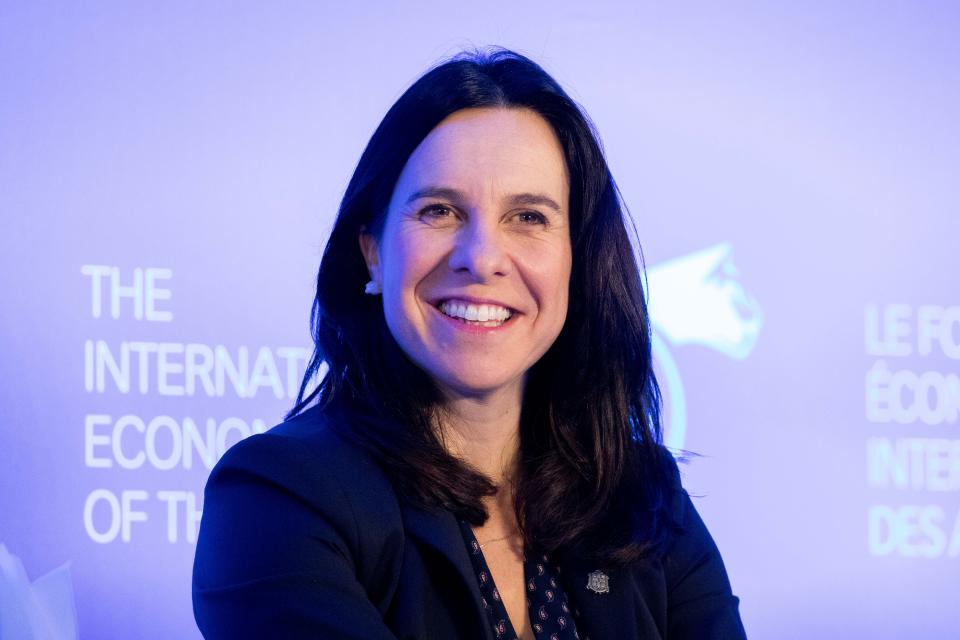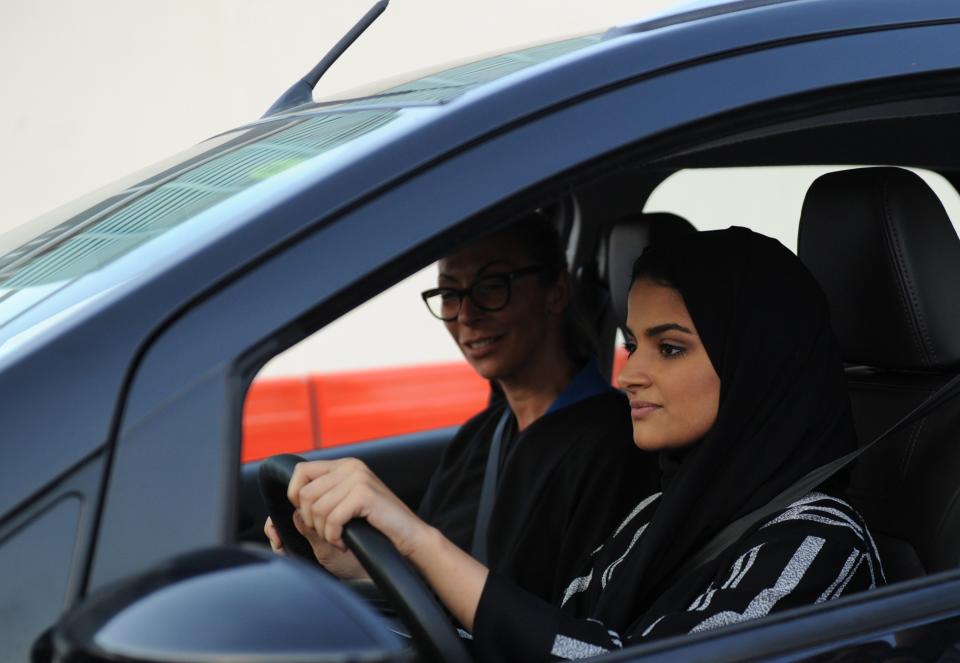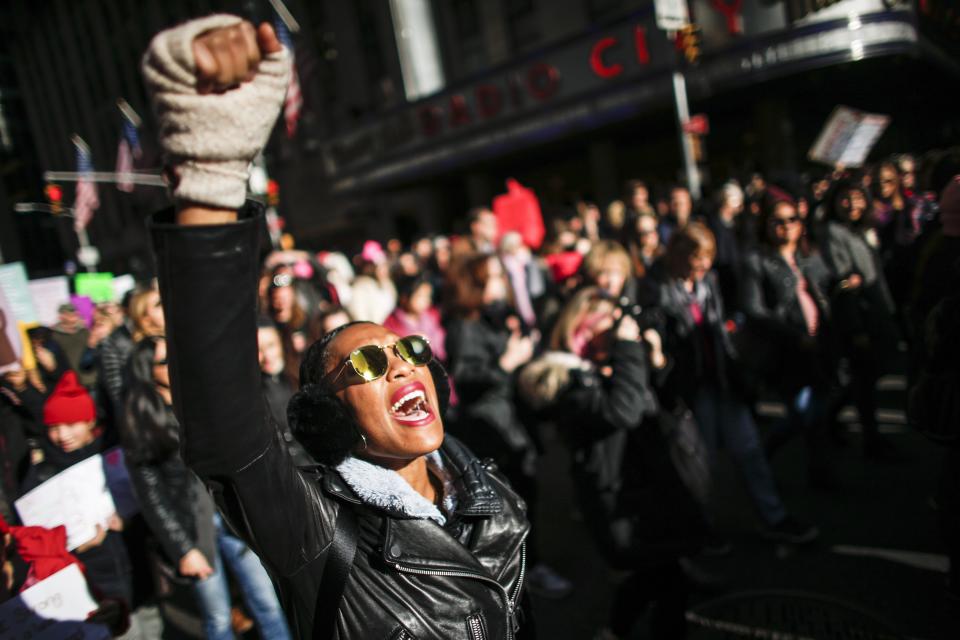Where Women Are Winning Around the World
We have a long way to go regarding women's equality—in the workplace, in politics, in health care—but in the last few months, the momentum has been ever so steadily increasing, pushing us toward a better tomorrow: Just look at what #TimesUp and #MeToo have done alone. All around the world, the wage gap is (slowly) closing, our representation in government and as top executives is improving, we're fighting back against sexual harassment, and demanding equal rights—for everyone. Keep scrolling to see where women have been winning in the past year.
Equal Pay in Iceland
The new year in Iceland started with a win for women: As of January 1, 2018, companies have to provide proof they're paying male and female employees equally for equal work. The legislation doesn't technically make it illegal to pay men more than women, as NPR notes—instead, it capitalizes on an equal pay act that's been in effect since 1961. Now, companies with 25 or more employees need to step up and have the government certify there isn't wage discrimination, every three years. Failure to do so results in a daily fine of 50,000 ISK (around $506), according to The Guardian. Forget vacationing to Iceland—this new policy makes a tempting case for a permanent move (that and the annual sheep roundup.)
The Future Is Female in Montreal with Valérie Plante
Valérie Plante made history last November when she became the first female mayor elected in Montreal, and it was huge political upset. Beating out the incumbent Denis Coderre with 51 percent of the vote, Plante—who aligns with the progressive Projet Montréal party—put items such as improvements to public transport and safety at the forefront of her campaign. Now, months after her election, she's delivered on cancelling Montreal's contract with Formula E Racing (due to the event's high costs), is moving to buy 300 new buses for the city, and is still working on adding a new metro line—the pink line, which will cut diagonally through the blue and orange lines—through Montreal, according to CBC News Canada.

OSCE Conference At Forum Economique International Des Ameriques In Paris
Danica Roem's Win in Virginia
In a huge win for the LGBTQIA community, Democratic candidate Danica Roem, a transgender woman, became the first openly trans person elected to a house of delegates in the U.S. this past November. What made her victory even more powerful was the sound defeat of her opponent, Robert G. Marshall: The highly conservative, homophobic incumbent who had (unsuccessfully) proposed a bill regulating where transgender people can use the bathroom in government buildings, according to the Washington Post, and also misgendered Roem. But Roem rose above the intolerance, and her election marks a crucial step forward for inclusive representation in our government. Per her site, Roem's focus in office will be traffic, jobs, schools, and equality. "We need to be a more welcoming commonwealth," she wrote. "One where our residents are valued for who they are, not singled out because of their religion, race, gender, sexual orientation, disability or any other inherent identifier."
New Zealand's Jacinda Ardern Is Proudly 'Prime Minister and a Mum'
Are you sensing a theme here? (It's a pretty awesome one.) Labor Party candidate Jacinda Ardern's recent election as prime minister of New Zealand was big on two fronts: She's the world's youngest female prime minister, at 37, and she's pregnant. In January 2018, just months after her victory, Ardern took to Twitter for her announcement, and it was refreshingly...normal. "This year we’ll join the many parents who wear two hats," she wrote on the 18th. "I’ll be PM & a mum while Clarke [Ardern's partner] will be 'first man of fishing' and stay-at-home dad. There will be lots of questions (I can assure you we have a plan all ready to go!) but for now bring on 2018."
Saudi Arabia Lifts Multiple Bans on Women
Last fall saw two advancements for women in Saudi Arabia, one of the world's most conservative countries. In September 2017, the country lifted the ban on women driving—come this June, they'll be able to apply for licenses, according to Glamour. It's still unclear how this will work under the present guardianship laws, which require a woman to get permission from a male guardian (i.e. husband, father, brother) in order to do things such as travel or get a marriage license. But the lift was definitely a positive move, as was what followed in October, when Saudi Arabia announced that women would be allowed to enter sports stadiums in 2018. They had previously been barred from stadiums because of the country's law that women cannot freely mix with men, per the Huffington Post. But now, they'll be allowed into three stadiums in Riyadh, Jeddah, and Dammam—albeit, in a designated family section separate from male seating areas. While these triumphs seem small, they may be indicative of a less conservative future for Saudi Arabian women.

SAUDI-WOMEN-RIGHTS-DRIVING
Catcalling Fines in France
In an effort to help women feel safe on the streets, the French government has been working to "set a legal definition of street harassment, and in turn, what penalties perpetrators could face," reports Traveler's Lale Arikoglu. Making lewd comments, following women, and pressuring them to give out their phone numbers on the street were all considered punishable offenses. Now, as of March, the Associated Press reports that the French government will enforce a €90 fine ($111) for "street harassment and sexist comments."
In more France news, Paris is testing out "on-demand bus stops" to combat sexual harassment on public transportation. This will allow passengers to get off the bus, even if it's not at a designated stop. Safety measures are also supposed to include added video surveillance and "plainclothes safety monitors."
Justice for Sexual Assault Survivors in Tunisia, Jordan, and Lebanon
First it was Tunisia, then Jordan, followed by Lebanon: There was a chain reaction of countries abolishing their "marry-your-rapist" laws, or loopholes that allowed rapists to escape punishment if they married their victims, in the second half of 2017. Per the Huffington Post, human rights activists are hopeful this will pressure other countries to do the same—yes, these laws exist in far more countries than we'd like to believe. All around the world. Purna Sen, policy director for UN Women, told NPR, "The penal codes in these countries do not approach rape as violence or abuse, but focus more on the idea that sexual contact occurred outside of marriage." However, Sen also noted that the recent repeals are indicative of a "growing global consensus that rape and sexual abuse are unacceptable," which has been building over the last 20 years.
The Reinvigoration of the Women's Movement
On January 21, 2017, days after President Donald Trump was inaugurated, what was estimated to be around 500,000 people stormed Washington in protest at the Women's March , while more than 5 million people marched all over the U.S. and the world. The powerful movement advocated for social change across spectrums—including ending violence, supporting reproductive rights, LGBTQIA rights, civil rights, immigration rights, disability rights, "environmental justice," and more, per the official site. Key speakers have included Gloria Steinem, America Ferrara, and Maryum Ali. This past January 20, the march had its second iteration. Here's hoping the movement—and the warriors behind it—is here to stay, and only growing stronger.


